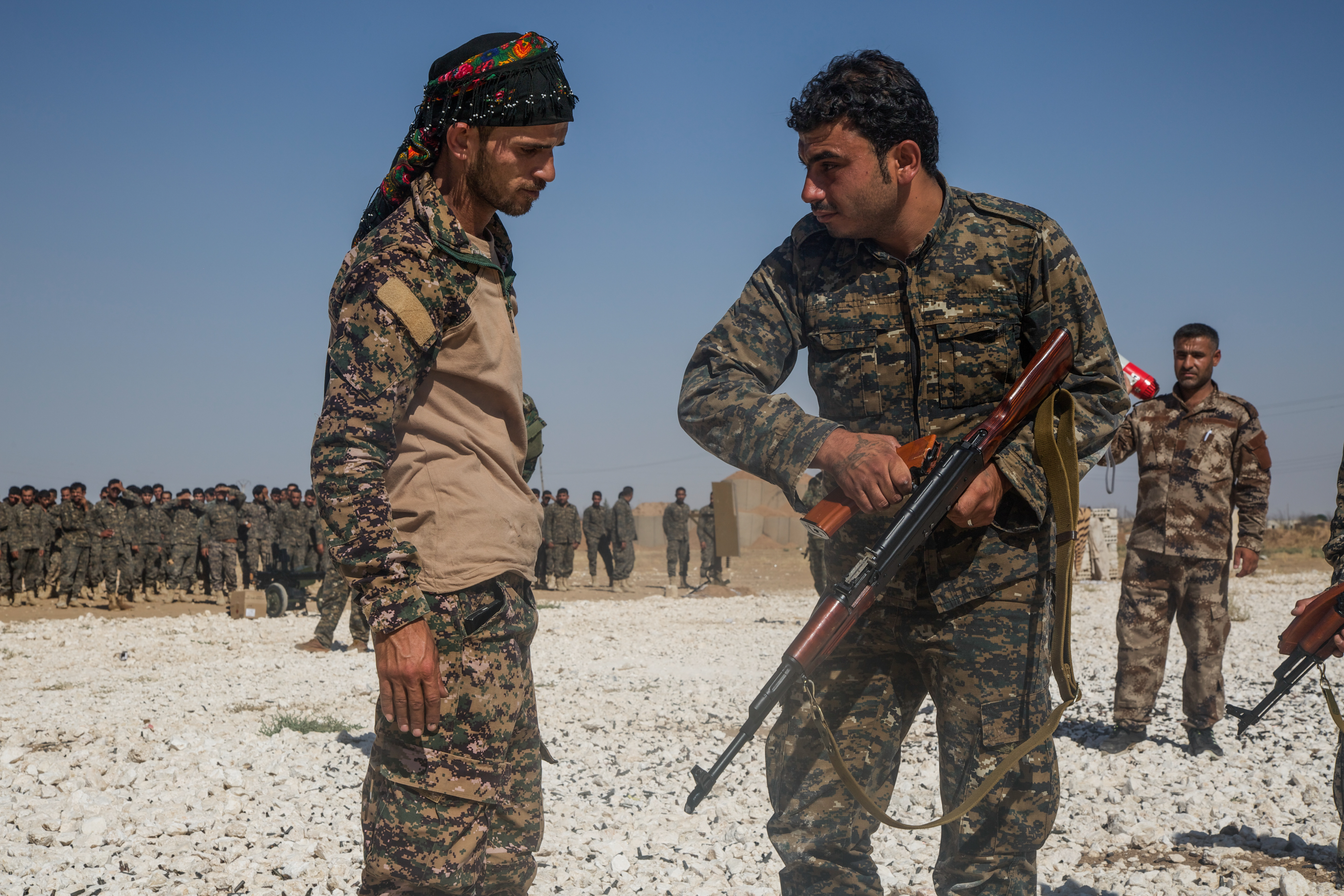
An instructor with the Syrian Democratic Forces observes a Syrian Arab trainee clear his rifle during small arms training in Northern Syria, July 31, 2017. Syrian Arabs who comprise the Syrian Arab Coalition, a component of the SDF, are fighting to expel ISIS and regain control of their homes. US Army photo by Sgt. Mitchell Ryan.
US-backed fighters on Tuesday claimed they have taken the city of Raqqa from ISIS, routing the group from its self-proclaimed capital after about four months of operations.
The US-led coalition, however, on Tuesday warned that there are still clearing operations underway, noting that ISIS has not been completely defeated and fighting is likely to continue.
“We see the terrorist group on the verge of a devastating defeat at the hands of our Syrian Democratic Forces partners,” said Army Col. Ryan Dillon, Combined Joint Task Force Operation Inherent Resolve spokesman, in a Tuesday briefing.
The Syrian Democratic Forces are in control of the city of Raqqa, combing it for landmines and sleeper cells, SDF Brig. Gen. Talal Sillo told The Associated Press.
The declaration came after heavy fighting and continued US airstrikes on the city, which at its peak, was completely run by ISIS and was the so-called capital of its international operations. About 350 ISIS fighters have surrendered inside Raqqa within the past few days, though resistance will remain by the approximately 100 fighters left and explosives are littered throughout the city, Dillon said. Then, the follow-on work can begin to stabilize the city.
“As far as what happens in Raqqa after ISIS has been cleared and Raqqa is liberated, the Raqqa Civil Council is already established, and they’re eager to begin work to restore essential services,” Dillon said. “But also very important to note is we must clear the remnants of all the explosives that have been left in Raqqa throughout this battle.”
Overall, the coalition estimates that about 6,500 ISIS forces remain in both Iraq and Syria. The group is “losing its grip” in the region and is effectively isolated, Dillon said.